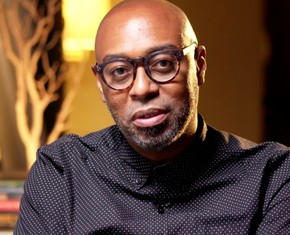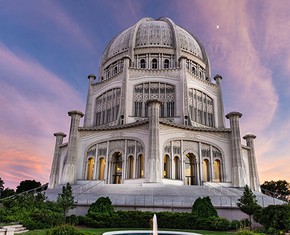The views expressed in our content reflect individual perspectives and do not represent the authoritative views of the Baha'i Faith.
 This is Part 6 of How Do We Know God Exists? :
This is Part 6 of How Do We Know God Exists? :
If you’ve been following these short essays, you know I’ve been recounting my own agonizing and doubt-filled journey during my early years, trying to decide whether or not I believed in God.
During that period I evaluated dozens of pro/con arguments on the existence of God. And lo and behold, it turns out my young mind didn’t discover them first – what a shock! Throughout history, especially since the Reformation and the Renaissance (when freedom of speech about God began to become less dangerous to your longevity), people have debated this big, “Important if True” question.
As I did my research I learned that each side, believers and skeptics alike, have made reasoned, thoughtful points in this centuries-long debate. Each side has put forth some excellent arguments. And each side, depending on your bias or your inclination or your mood, has convincing points.
In fact, considering these arguments, I contemplated God’s existence for several years. I went back and forth. I read and thought and meditated about this question, and I actually realized, maybe halfway through a five-year period of internal search, that I really wanted to be an agnostic. At that time in my young life, I thought the agnostic position made more rational sense, probably because I sincerely and truthfully did not know if God existed. Also, of all the people I knew then, the skeptics felt more like my tribe. Their sincere, doubting questions fit better into my world view at the time. The skeptics had what seemed to be a more honest intellectual viewpoint. They sounded somehow smarter than most, too. So I was inclined to go with their team – but ultimately I didn’t.
Why not? Well, to make a long story even longer, the ancients convinced me.
I’ll try to explain by going through the six most powerful philosophies about the existence of God that I came across in my search, and I’ll describe the best answers I found. Then we’ll take a look at the criticisms of these ancient wisdom traditions from the group of intellectuals and writers called the new atheists, and you can decide for yourself. First in my search, I came across the ontological question.
As discussed in an earlier essay, ontology, a branch of metaphysics, concerns itself with the question of existence. Here’s the ontological argument, first written down in 1077 by St. Anselm, the Archbishop of Canterbury: If it is logically possible for God to exist, then He must exist. In other words, if you can imagine there is a God, then because no void is possible in existence, there must be a God.
This very subtle way of looking at the question comes originally from Parmenides, the 5th Century BC Greek philosopher who founded the science of ontology. Known as the “grandfather of Western philosophy,” Parmenides had a great influence on Plato, who reflected his ideas and also believed that existence is eternal because nothing can come from nothing.
Here’s a brief summary of the logic path of this interesting argument:
- Can you conceive of a being greater than any other being?
- The answer is yes – the human imagination is capable of conceiving of that being.
- If such a being doesn’t exist, then we can still conceive of something greater.
- But this would be absurd – nothing could possibly be greater than the most great being.
- Consequently, a most great being – God – must exist.
This made me shake my head in confusion the first time I heard it and read it. It sounded circular and abstruse. But when I really thought about it, I realized that St. Anselm’s famous logic made sense.
Then I read other, more recent philosophers like Descartes and Leibniz, and understood the argument better. Descartes, writing in his Fifth Meditation, said the proof of the existence of God comes directly from our ability to conceptualize a supremely perfect being – that it is impossible to conceive of a supremely perfect being who lacks existence. He argues that since we can and do conceive of a supremely perfect being, we must conclude that a supremely perfect being exists.
The great 18th Century philosopher Leibniz added to the discussion by saying, since perfections cannot be analyzed, it is impossible to demonstrate that perfections are incompatible. He concluded that all perfections can co-exist together in a single entity – and therefore, God must exist. In the Baha’i writings, Abdu’l-Baha makes this very similar and even more trenchant point:
Can the creation be perfect and the creator imperfect? Can a picture be a masterpiece and the painter imperfect in his art? For it is his art and his creation. Moreover, the picture cannot be like the painter; otherwise, the painting would have created itself…. The contingent world is the source of imperfections: God is the origin of perfections. The imperfections of the contingent world are in themselves a proof of the perfections of God.
For example, when you look at man, you see that he is weak. This very weakness of the creature is a proof of the power of the Eternal Almighty One, because, if there were no power, weakness could not be imagined. Then the weakness of the creature is a proof of the power of God; for if there were no power, there could be no weakness; so from this weakness it becomes evident that there is power in the world. Again, in the contingent world there is poverty; then necessarily wealth exists, since poverty is apparent in the world. In the contingent world there is ignorance; necessarily knowledge exists, because ignorance is found; for if there were no knowledge, neither would there be ignorance. Ignorance is the nonexistence of knowledge, and if there were no existence, nonexistence could not be realized….
Therefore, it becomes evident that there is an Eternal Almighty One, Who is the possessor of all perfections, because unless He possessed all perfections He would be like His creation. – Some Answered Questions, pp. 5-6.
Read the next article: The Moral Case for God
Read the previous article: The Unknowable Mystery of God

















Comments
Sign in or create an account
Continue with Googleor